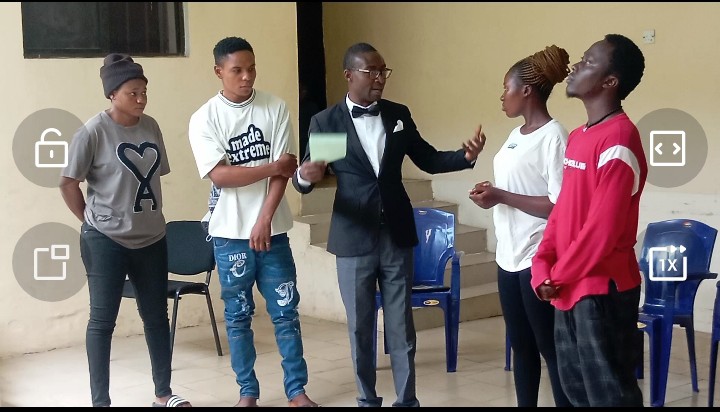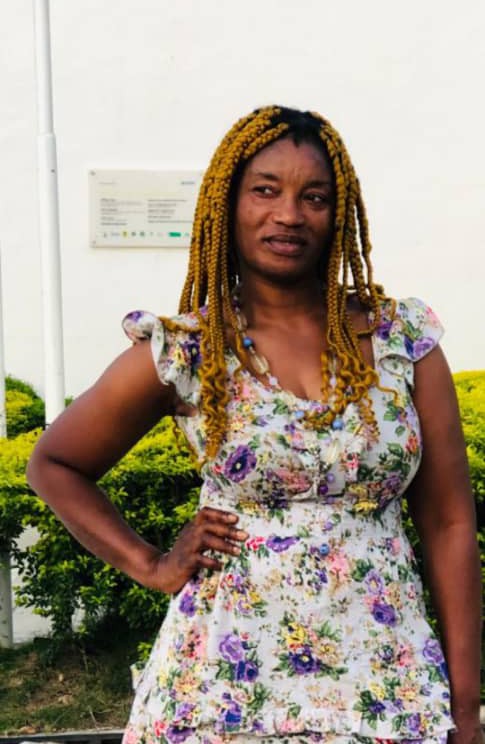
….as AAD and STACA partner EKSUTH on mental health awareness
By Wole Balogun
A social work expert and dramatherapist, Mrs. Adeyinka Nasir, has argued that men who rape minors and other vulnerable women may be suffering from one psychological disorder or another and may also need help to cure them of this malady.
Nasir, who is also the president of Sanity Through Academy of Creative Arts (STACA) is of the opinion that in addition to giving attention and protecting the victims of rape, the offenders who would most likely commit the offence again after serving out the punishment, says they could be a product of the environment where they commit such crimes, hence the need to cure them of such bad behaviour before they are integrated into the society. This, she said is one of the basic foundations of social work that look at the root of the offence rather than hastily condemn and commit the offender. She added that men who rape, especially the pedophiles, need services of psycho-therapists, dramatherapists and social workers as they may be suffering from deep seated emotional issues arising from their hostile environment. The social work/drama practitioner made the remarks during the celebration of World Mental Health Day which was marked by Association of African Drama Therapists (AAD) in Collaboration with Department of Psychiatry, Ekiti State Teaching Hospital (EKSUTH) through engagement with mentally challenged patients of the Psychiatric Department, resulting in a playlet, titled: l WISH I KNEW.
The play was thematically woven round awareness creation about some of the causes of and preventive measures of mental illness.

Written by Mrs. Nasir, and directed by Fijay Santos, the plays narrates the pathetic story of a young lady who is raped by a man she goes to meet for financial assistance. Disappointed by her father who cannot afford to pay her school fees because of unpaid salaries by government, she seeks help elsewhere and falls into the hands of a rapist and drug addict. Her condition worsens when her mother insists on a culture of silence about the rape incident, saying that reporting the rapist to the authorities would lead to her being stigmatized and rejected by the society.
Consequentially, she became depressed and ends up in a psychiatry home as she loses her emotional balance to the traumatic experience. She however, finds succour from social workers, dramatherapists and psycho-therapists at the end. Thus, the play succeeds in creating awareness about mental health issues and reinforces the urgent need for collaborative efforts of medicine and creative arts. In the same vein, it calls for proper placement and recognition of social workers and dramatherapists as no other profession can do their work for which they were specifically trained. Explaining the inspiration behind the engagement, Nasir said her passion for humanity and the dire need to complement the role of psycho-therapists and psychiatrist, informed the intervention and collaboration with the department.
She said: “l have passion for humanity. I am a very emotional person and l don’t like seeing people suffering. In the course of this profession, we realize that, there is yet to be a befitting place for social workers in our society. Social work profession train people to empathize and take them as they are without being judgmental. We attend to all and aim at helping the vulnerables to have self-worth, and self-determination that would help them to be functional individuals and be productive to the society. Social work is not charity but a helping profession that cares about individual and societal well-being. At Sanity Through Academy of Creative Arts (STACA) and Association of African Dramatherapists (AAD), we are looking at how best to collaborate to assist victims of several abuses and the perpetrators. In our society for instance, we only focus on victims of rape, leaving out the perpetrators, but they need help too. “Every child’s mind is like a tabular rasa and he gets what he becomes from the environment as he grows up as nobody was born a criminal. We want a sane society. We realize that in the course of tackling mental health issues, we can solve other issues. We then use dramatherapy to assist the psycho-therapists in doing these jobs. This has really helped and we have seen the positive impact on the patients.
We have our procedure, we can diagnose clients’ issues the way doctors diagnose patients’ illness. One of the things we have imparted in the patients in the hospital is to build their confidence, to ask questions concerning the treatment they receive. Also, when they take any drug, they should study the effect of drugs they take so as to know whether it works or not.
“We are facing challenges of facilities. The patients in most cases, need positive engagement to divert their attention from the causes of their illness, we had to bring in some game facilities to support what they have here. Most of the patients are also having issues with getting money for their drugs and that make them to relapse while some due for discharge cannot pay for their medical bills, hence, they remain in the hospital. We hereby appeal to government to support the hospitals and the patients. We also appeal to those who get international donations to use the money for the purposes they got it for, “she said.
Speaking about the performance, Dr. Taofiq Olaide Nasir, the first African to have a doctorate degree using drama as therapy and who also represents Association of African Dramatherapists at the event, said: “What has happened here is basically a further enlightenment about mental health and with the play, we have brought to the knowledge of viewers many things they are not aware of in this part of the world about mental illness. This is the first time such will be happening in Ekiti state; it is our joy to collaborate with the state Teaching Hospital to put this up in commemoration of the World Mental Health Day. What I can say from observation and interaction with some of the patients is that the play is very beneficial to them, they asked reasonable questions and made certain revelations. Some wished that they had seen the play earlier as that they wouldn’t have been in the hospital if they had. “The government should pay more attention to the work of a social worker. They are as equally important as any other professional in the field of human service profession. They are specialised fields which no other professional can replace. Dramatherapists are also needed in every health outfits. The academicians should also be encouraged to go into this area because they are needed much more especially in Africa. I want to appeal to all stakeholders to collaborate with us on using dramatherapy to reach out to the vulnerables. If this is done, we will prevent many from having mental illness. According to him, there is a very thin line between sanity and insanity and prevention is far better than cure because it is very difficult to bring back a mentally ill patient to normal,” he said.
Commenting on the development, a clinical psychologist and staff of the EKSUTH who also took part in the performance, Dr. Adedotun Ajiboye, hailed the efforts Mrs. Nasir and Association of African Dramatherapists in bringing dramatherapy to support the psychiatry. He said the therapeutic drama is an effective measure being used to complement the efforts by doctors at the department. His words: “The concept of a dramatherapy is a welcome development. One of my main works is psycho-therapy and this is complementing it. In the words of Mrs. Aduloju, a social worker at EKSUTH, ‘this is a very welcome development because what you hear, you tend to forget but what you see and hear stays much more longer in your memory. Treatment is not only physical drug drug drug, dramatherapeutic play is also a drug.
It is a therapy. So, drama is a way of educating the society and it is also helpful in our profession. There should be a collaboration between psychotherapy, social work and dramatherapy, which no doubt is highly beneficial to the patients. Dr. Taofiq Olaide, an Associate Professor of Federal University, Oye Ekiti advised on the possibility of institutionalizing dramatherapy in health institutions in Nigeria, he said: “What we have seen today is an evidence that dramatherapy can help, therefore, we should give it all the needed support. We should go to all stakeholders and philanthropists to collaborate and see how we can use dramatherapy to treat several health issues in our society.
